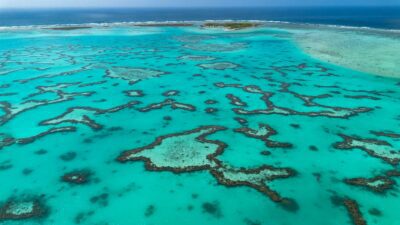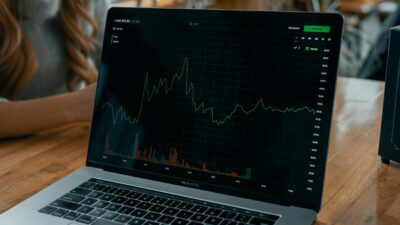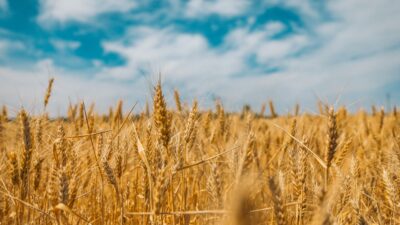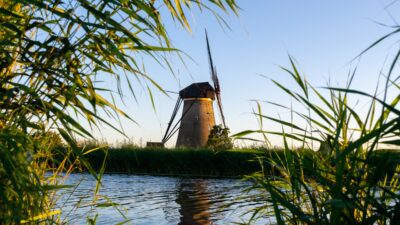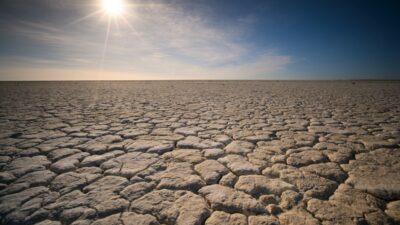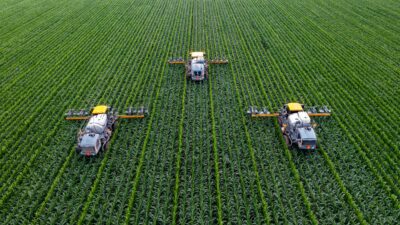Sandra Peter and Kai Riemer
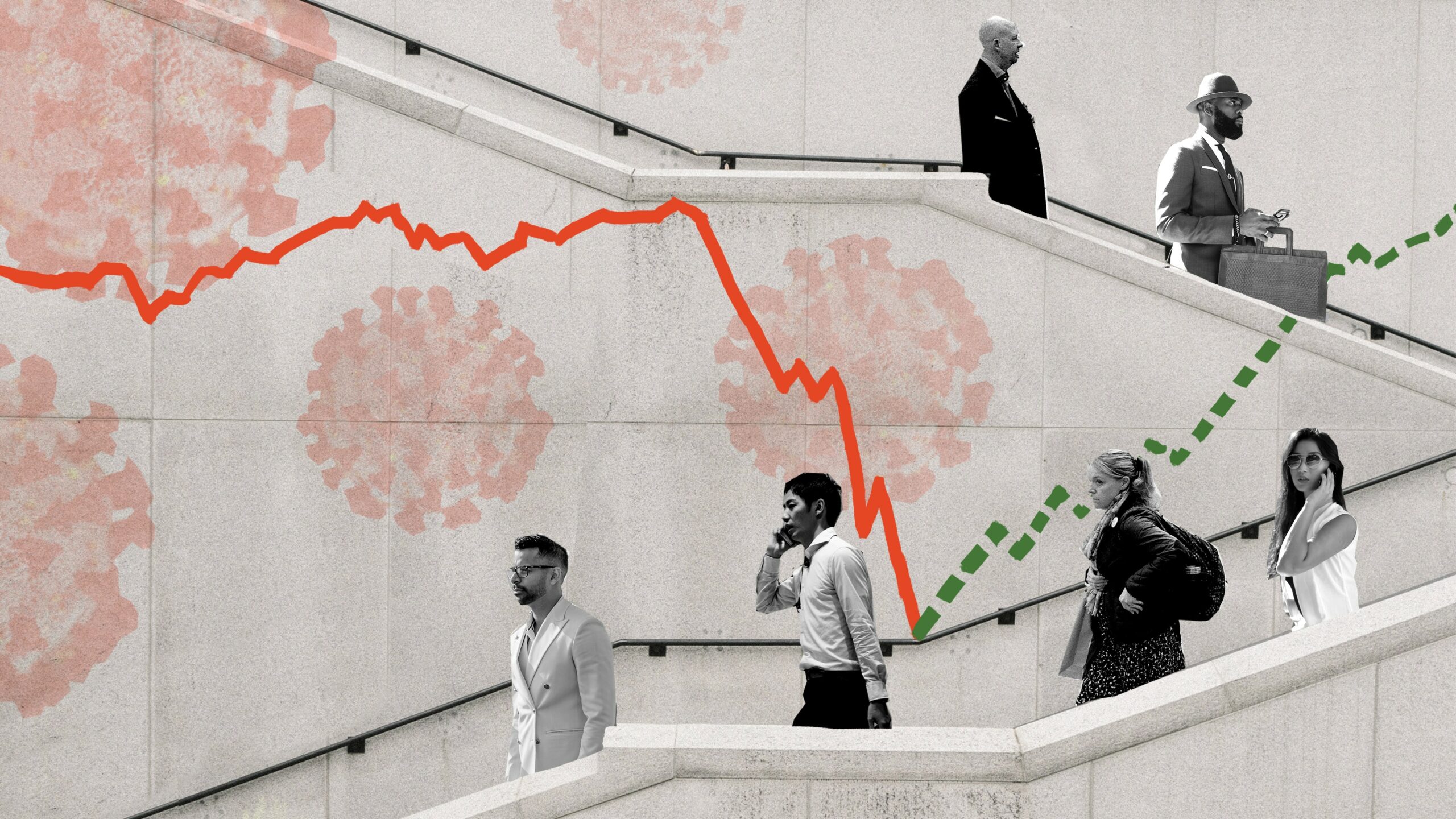
Climate and the environment on Corona Business Insights
What coronavirus means for climate and the environment: from emissions and climate responses, to poaching and deforestation, to plastic pollution and revenge buying.
As COVID-19 sets out to change the world forever, join Sandra Peter and Kai Riemer as they think about what’s to come in the future of business.
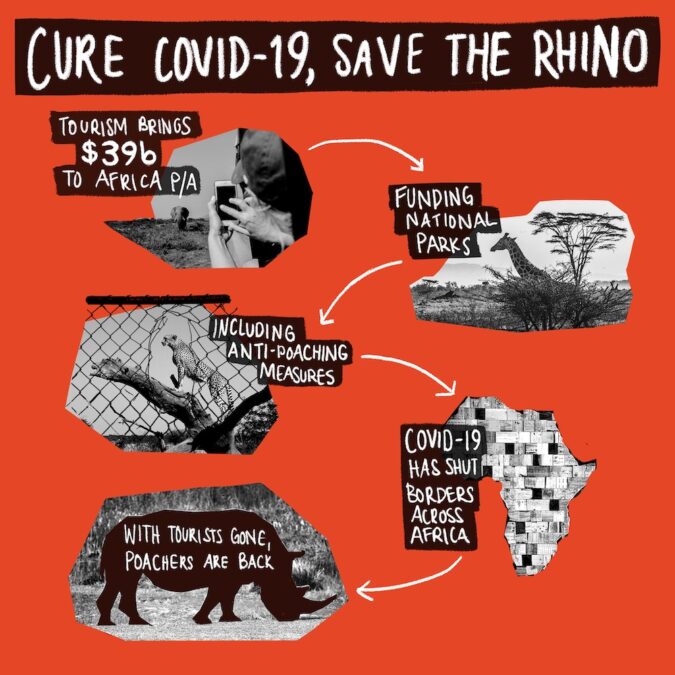
Shownotes
Emissions fall during the COVID-19 crisis
Historic drop in carbon emissions
Lockdowns are clearing the air
COVID-19 creates a plastic problem
COVID-19 impacts on climate response
Poachers kill rhinos as tourism halts
Revenge shopping after COVID-19
What the coronavirus means for climate change
Our previous discussion on climate change conversations during COVID-19
This episode is part of a podcast series covering what COVID-19 will mean for the business world, where we look at the impact on the economy, businesses, industries, workers and society. This is part of our ongoing coverage of the impact of COVID-19 on the future of business.
Follow the show on Apple Podcasts, Spotify, Overcast, Google Podcasts, Pocket Casts or wherever you get your podcasts. You can follow Sydney Business Insights on Flipboard, LinkedIn, Twitter and WeChat to keep updated with our latest insights.
Send us your news ideas to sbi@sydney.edu.au.
Dr Sandra Peter is the Director of Sydney Executive Plus at the University of Sydney Business School. Her research and practice focuses on engaging with the future in productive ways, and the impact of emerging technologies on business and society.
Kai Riemer is Professor of Information Technology and Organisation, and Director of Sydney Executive Plus at the University of Sydney Business School. Kai's research interest is in Disruptive Technologies, Enterprise Social Media, Virtual Work, Collaborative Technologies and the Philosophy of Technology.
Share
We believe in open and honest access to knowledge. We use a Creative Commons Attribution NoDerivatives licence for our articles and podcasts, so you can republish them for free, online or in print.
Transcript
This transcript is the product of an artificial intelligence - human collaboration. Any mistakes are the human's fault. (Just saying. Accurately yours, AI)
Intro From the University of Sydney Business School, this is Sydney Business Insights.
Sandra And this is Corona Business Insights. I'm Sandra Peter
Kai And I'm Kai Riemer.
Sandra And in this series, we explore the impact of COVID-19 on work business economy, the environment and industry.
Kai And today's topic is the impact of COVID-19 on climate and the environment.
Sandra The coronavirus has led to a really astonishing slowdown of economic activity, air travel pretty much shut down across the world.
Kai And while the human and the economic loss from this crisis are measurable, there have also been some stories around the more positive effects of this shutdown and the lack of travel on the environment and potentially slowing down climate change.
Sandra To be clear, this pandemic has had devastating effects on human life, and it seems to be leading to an economic disaster for years to come. But as you mentioned, there have been these positive stories around the fall in pollution. We've seen images from NASA, and from the European Space Agency showing the lack of pollution across China for most of February and also across Italy, and especially in the north of Italy across Spain and the UK as the economies have slowed down.
Kai And The Guardian reports that there might be a reduction in co2 emissions of around 4 to 5% for this year, off the back of the slowdown in economic activity. Air travel numbers are down, off the normally almost 100,000 commercial flights a day, less than half are currently operating worldwide. And of course, oil prices have fallen which has put some question mark behind the viability of some of the more environmentally damaging practices of extracting oil through, for example, shale sand and fracking of gas and stuff like that.
Sandra So whilst on the one hand, this seems to give a positive early outlook to how COVID-19 impacts the environment and climate. It's worth looking at the longer-term implications, and the situation there looks actually quite different.
Kai Yeah, so in the short term, it might look like the environment is doing quite well. We want to outline two things, one, that those falls in pollution are likely to be very temporary and short-lived. And that second, the damage of the COVID-19 crisis to the environment and to the climate response might be much more damaging long-term, than this early news might lead us believe.
Sandra So if we go back to the oil prices, even though we've seen, this week alone, oil prices go down an additional 10%, global oil producers are expected to cut overall output as an agreement that's coming place between the United States and OPEC. But if we look historically after the 2008 economic crisis when the economy bounced back, oil use and carbon emissions both spiked up. So, the expectation is that once the economy does pick up, this will change.
Kai And we also want to point out that while air travel is down more than 50%, it only makes up about two and a half percent of global emissions anyway. So, this is a rather small dent, which again, is expected to bounce back over time.
Sandra Which also highlights the fact that actually our personal choices in terms of travel, for instance, matter very little when it comes to overall effects on the environment.
Kai There might be some reason to believe that businesses will adopt more of the digital work practices, and might reduce business travel, we also might see a bit more remote-working after the crisis is over, which might lead to less pollution from commuting. But these are a drop in the ocean, and if we look at historic figures of falls in emissions through crisis, like the recession in the early 1980s, or even the financial crisis of 2008 and 9, those dents were always very temporary, and emissions would outpace the reduction within a matter of a couple of years after.
Sandra And if we continue to look at long term impacts, especially in the light of the oil discussion that we had earlier, renewable projects are already seen to be struggling around the world. The short-term factor was the supply of solar panels and other components coming in from China as China's economy slowed down. There's also the matter of projects continuing to be funded. As we see economies contract, companies are struggling to keep these projects going. And as the oil prices have been going down, renewable energies appear as a less attractive option.
Kai But I think one of the biggest problems will be both a lack of monetary funds and a lack of attention for climate response, both in terms of funding research, there will be less public funds available for projects because it goes into the stimulus response around COVID-19. And corporations are likely to have much less funding afterwards for costly transformations that they would otherwise do to make their operations more climate neutral. So, all of this takes away from the all-important climate conversation
Sandra And the climate momentum. And we've covered this in an episode on The Future, This Week that we'll include in the shownotes, where we spoke about how the momentum was lost with the movements that we've seen around people like Greta Thunberg, and the conversations that we had in climate summits. As we saw social distancing come in, and as we saw travel bans and conferences being cancelled, the attention has shifted to a very large extent to health and financial concerns.
Kai But we also want to point out some more immediate effects that the COVID-19 crisis has that might have long-term ramifications. One is a rather mundane issue that becomes big once you add up its effects, and that is a lot of food is now being consumed as takeout. Coffees are purchased as takeout, food is purchased as takeout. All of these practices need way more plastic, coffee shops have stopped taking reusable cups because that might increase the risk to their workers of contracting the virus from its consumers. So, we see more plastic lids, we see more plastic packaging, food containers. All of this adds up, and might end up in landfill or indeed pollute our oceans. And on top of this, our newly adopted hygiene practices use face masks and the like, a lot of which also add to the waste problem.
Sandra And this is of course, not to say that these times don't call for extra caution in our daily lives. But this is rather a longer-term conversation around the habits that took quite a long time to develop, such as giving up plastic straws or using reusable cups, that we will need to reintroduce in our lives once the crisis has abated.
Kai And we also want to point out that as travel subsides and tourism doesn't happen, a main argument for environmental protection in many parts of the world falls away. People are now turning to poaching and illegal logging because they have to feed their families, where normally they would generate income from tourism.
Sandra To put this in perspective, Africa's tourism industry is about $39 billion. And that business funds not only wildlife conservation across the continents of South Africa, Botswana, all of these countries relying on that money for wildlife conservation, but also as you well pointed out, as the motivation not to continue poaching.
Kai And even if it's only going on for a year, an increase in poaching can cause long-lasting effects to local populations, and potentially put species on the endangered list as an unfortunate side effect of this COVID-19 crisis. But let's look at what might happen once we come out of this lockdown.
Sandra On the one hand, there are some concerning reports in China as cities are slowly starting to open. One Hermès boutique alone made $2.7 million in one day after it reopened in what some have termed 'revenge buying'.
Kai Equally, some have speculated that once travel is allowed again, people will actually want to travel more to get out and about, not less.
Sandra But we want to end on a positive note, because whilst this is a crisis, it also provides ample opportunities for actually doing something positive and addressing the climate crisis. If we look, for instance, at global energy investments, about 70% of those globally come from governments. So as governments try to jumpstart economies and bring countries out of recessions, there's opportunities for recovery plans to actually include large scale investments in clean energy technologies, for instance.
Kai So it depends on how the stimulus funds are being spent is what you're saying, right?
Sandra Yes, even though the short-term focus has to be on wages and on helping businesses stave off the crisis, and on individuals staving off the crisis, longer-term there is an opportunity to actually not overlook really for renewable energies to actually continue with things like Europe's Green Deal and so on.
Kai And finally, the changing in work practices that we experience right now could lead to more lasting changes in the way we work. For example, the adoption of a four-day work week might not only help with the recovery by spreading the burden, distributing work more equally among more people, but might also counter intuitively increase productivity which helps with the recovery and improve work life balance of individual workers. And of course, aid environment through a reduction in commute.
Sandra And that's all we have time for today.
Kai Until next time, on Corona Business Insights.
Sandra Thanks for listening.
Kai Thanks for listening.
Outro From the University of Sydney Business School. This is Sydney Business Insights the podcast that explores the future of business.
Close transcript
